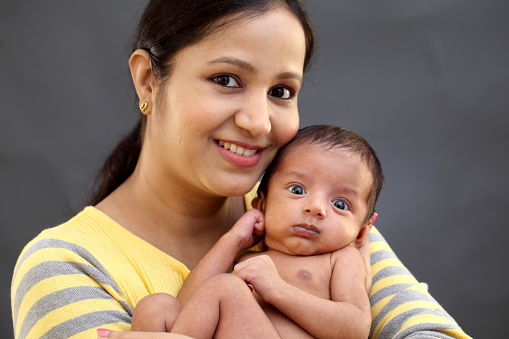Surrogacy, a practice at the intersection of science, ethics, and human emotion, has gained immense attention in recent years. This article leaves on a journey into the scene of surrogacy in India, digging profound into its verifiable development, the different kinds it envelops, the lawful and ethical considerations surrounding it, and the intricate process that hopeful parents and surrogate mothers undergo. As the idea of surrogacy keeps on testing cultural standards and legal boundaries, understanding its intricacies and suggestions becomes essential.

Understanding Surrogacy
Contents
Surrogacy is a method of assisted reproduction where a woman (the surrogate) carries and gives birth to a child on behalf of another person or couple (the intended parents). Surrogacy can be a complex and emotionally charged process, and the laws and regulations surrounding it vary from country to country. In India, surrogacy has been a popular option for intended parents from various parts of the world due to its relatively lower costs and established medical infrastructure. However, regulations have evolved over time.
Types of Surrogacy: There are two main types of surrogacy – traditional and gestational:
1. Traditional Surrogacy: In this type, the surrogate’s egg is used, making her the biological mother of the child. This method is less common due to legal and emotional complexities.
2. Gestational Surrogacy: This is the more common form. The surrogate carries the child conceived using an egg and sperm from the intended parents or donors. The surrogate has no genetic relationship to the child.
3. Legal Framework: India has seen changes in its surrogacy laws over the years due to concerns related to exploitation of surrogates and the commodification of children. The Surrogacy (Regulation) Bill, 2019 was introduced to regulate surrogacy in India. Some key points from the bill include:
- Only Indian citizens can opt for surrogacy in India.
- Only married heterosexual couples can apply for surrogacy, and they must have been married for at least five years.
- The intended parents should have a medical certificate proving their inability to conceive.
- Commercial surrogacy, where the surrogate is compensated, is prohibited. Only altruistic surrogacy, where the surrogate is not paid beyond medical expenses, is allowed.
- Close relatives of the intended parents can serve as surrogates.
- A surrogacy board will be established to oversee the process.
4. Cost and Medical Facilities: India has been known for giving moderately reasonable surrogacy administrations contrasted with a few different nations. The nation has an advanced medical infrastructure, making it an objective for clinical the travel industry, including surrogacy.
5. Ethical Concerns: Surrogacy raises different moral worries, including the expected exploitation of surrogate mothers, commodification of children, and issues connected with the mental prosperity of all gatherings included.
6. International Intended Parents: India’s popularity as an objective for worldwide planned guardians looking for surrogacy has disappeared because of the changing legal landscape and worries over deceptive practices.

Surrogacy Process in India
Surrogacy has become a viable option for individuals and couples facing challenges in conceiving a child. India, known for its advanced medical facilities and skilled professionals, has emerged as a popular destination for surrogacy. If you’re considering embarking on this journey, here’s a comprehensive guide to the surrogacy process in India.
Initial Consultation and Assessment
The journey begins with a consultation with a fertility specialist or a surrogacy agency. During this consultation, your medical history and fertility issues will be assessed. The specialist will discuss your options, provide information about the surrogacy process, and answer any questions you may have.
Choosing a Surrogate
Once you’ve decided to proceed with surrogacy, you can choose between a gestational surrogate (where the embryo is implanted in the surrogate, who is not genetically related to the child) or a traditional surrogate (where the surrogate’s egg is fertilized with the intended father’s sperm). Surrogates are carefully screened for physical and mental health, and the compatibility of their menstrual cycle with the embryo transfer process is considered.
Legal Formalities
Legal agreements between the intended parents and the surrogate are a crucial step. These contracts outline the rights, responsibilities, and financial arrangements of all parties involved. Indian law mandates that the surrogate relinquishes any parental rights to the child. Legal experts experienced in reproductive law can guide you through this process.
Medical Procedures
The medical procedures involve several steps:
- Ovum (Egg) Retrieval: If using the intended mother’s eggs, she will undergo hormonal stimulation to produce multiple eggs, which are then retrieved for fertilization. Alternatively, donor eggs can be used.
- Sperm Collection: The intended father provides a sperm sample, which is used to fertilize the retrieved eggs.
- Embryo Creation: Fertilized eggs (embryos) are cultured in a laboratory for a few days. The strongest embryos are selected for transfer.
- Embryo Transfer: The selected embryos are transferred into the surrogate’s uterus. This is a relatively simple and painless procedure.
Pregnancy and Care
Upon successful embryo transfer, the surrogate will undergo regular medical check-ups to monitor the pregnancy’s progress. The intended parents and surrogate can mutually decide whether the surrogate will stay at a medical facility during the pregnancy or continue her regular routine while attending necessary appointments.
Childbirth and Legal Proceedings
As the pregnancy reaches its full term, the surrogate will give birth to the child. After birth, legal processes, for example, getting a birth endorsement and guaranteeing the planned guardians are perceived as the legal guardians may be required. Indian regulation specifies that the planned guardians are the legal parents, and the substitute has no lawful case to the child.
Post-Birth Care
After the child is born, the intended parents assume full responsibility for their newborn.They might decide to stay in India until all lawful methods are finished, or they can get back with their nation of origin with the child, complying to the legal requirements for international adoption or parental acknowledgment.
Overall, Surrogacy in India involves a series of well-defined steps, from initial consultation to legal formalities, medical procedures, and post-birth care. While the process offers a way to life as a parent, it’s critical to be educated, counsel specialists, and guarantee that all gatherings included are treated with respect and fairness. As surrogacy regulations and guidelines keep on developing, keeping awake to-date with the latest legal requirements is essential for a smooth and fruitful surrogacy journey in India.

Advantages and Challenges of Surrogacy in India
Surrogacy, a reproductive arrangement in which a woman carries and gives birth to a child on behalf of another person or couple, has gained significant popularity as an assisted reproductive technology. India has emerged as a prominent destination for surrogacy due to various advantages, but it also presents certain challenges that need to be carefully addressed. Let’s delve into the advantages and challenges of surrogacy in India.
Advantages
- Affordability: One of the primary reasons for India’s popularity as a surrogacy destination is the cost-effectiveness of the procedure. Surrogacy procedures in India can be considerably less expensive than in many Western countries, making it a viable option for intended parents with limited financial resources.
- Medical Expertise: India boasts a robust medical infrastructure with highly skilled fertility specialists, advanced technologies, and state-of-the-art fertility clinics. This medical expertise provides assurance to intended parents that the procedure will be conducted under professional supervision.
- Diverse Surrogate Pool: India’s diverse population allows for a wide range of potential surrogate mothers, increasing the chances of finding a suitable match for intended parents. This diversity extends to surrogate mothers’ backgrounds, which can accommodate various cultural and ethnic preferences.
- Supportive Legal Framework: While the legal landscape has evolved over the years, India has established regulations to protect the rights of intended parents, surrogate mothers, and the child born through surrogacy. The legal framework provides a sense of security to all parties involved.
- Emotional Connection: Many surrogates in India come from disadvantaged backgrounds and view surrogacy as an opportunity to uplift their families financially. This mutual understanding often leads to a strong emotional bond between the surrogate and the intended parents.
Challenges
- Ethical Concerns: The commercialization of surrogacy raises ethical questions about the potential exploitation of surrogate mothers, especially those from vulnerable socio-economic backgrounds. Ensuring the autonomy, consent, and fair compensation of surrogate mothers is a critical challenge.
- Lack of Uniform Regulations: While India has made efforts to regulate surrogacy, the lack of uniform regulations across states can lead to inconsistencies in the application and interpretation of the law. This can create confusion and legal challenges for intended parents.
- Exploitative Practices: Previously, there have been occasions of untrustworthy works on, including deficient clinical consideration for surrogate mothers and occurrences of relinquishment of children with medical conditions. These occurrences feature the requirement for severe checking and authorization instruments.
- Emotional Toll: The profound cost of surrogacy on all gatherings included — planned guardians, surrogate mothers, and the child — can’t be undervalued. The complex close to home elements can prompt possible contentions and difficulties in overseeing assumptions.
- International Legal Considerations: For international intended parents, exploring the lawful parts of surrogacy across lines can be many-sided. The contrasting general sets of laws of the expected parents’ nation of origin and India can present difficulties with regards to acknowledgment of parentage and citizenship for the child.
In Addition, surrogacy in India offers a few benefits, including affordability, medical expertise, and a supportive legal framework. However, it likewise presents difficulties connected with ethics, legal inconsistencies, possible shifty practices, profound intricacies, and worldwide legitimate contemplations. As the field of surrogacy keeps on developing, India and different countries really must address these difficulties through complete guidelines, ethical practices, and an emphasis on the prosperity of all gatherings included. This approach will ensure that surrogacy remains a compassionate and responsible option for those seeking to build families.

Surrogacy Success Rates and Supportive Care: India vs Other Countries
The pursuit of parenthood through surrogacy is a significant decision, one that requires thorough consideration of success rates and the quality of supportive care. As the popularity of surrogacy continues to rise, intended parents often weigh the option of pursuing surrogacy in different countries. This article examines the surrogacy success rates and the level of supportive care provided in India compared to other countries, offering insights to help intended parents make informed choices.
Surrogacy Success Rates: India
India has emerged as a prominent destination for international surrogacy due to its skilled medical professionals, advanced fertility clinics, and cost-effective solutions. Success rates in Indian surrogacy clinics have varied over the years, influenced by factors such as medical advancements, surrogate selection, and embryo quality. On average, the success rates for surrogacy in India have been competitive, with live birth rates ranging from 40% to 60%.
Surrogacy Success Rates: Other Countries
Other countries known for providing surrogacy services include the United States, Ukraine, Russia, and Thailand. The United States, in particular, boasts high success rates due to its stringent medical and legal regulations. Success rates in the U.S. often surpass 70%, owing to the emphasis on quality medical care and surrogate screening. Ukraine and Russia also offer competitive success rates, generally ranging between 50% and 60%.
Factors Influencing Success Rates
- Medical Expertise: The experience of medical professionals and the availability of cutting-edge technology play a pivotal role in achieving higher success rates.
- Legal Framework: A well-defined legal framework that protects the rights of all parties involved can enhance the success of surrogacy journeys.
- Surrogate Screening: Rigorous screening of surrogate mothers ensures optimal physical and mental health, reducing potential complications.
- Embryo Quality: The quality of embryos transferred during the IVF process directly impacts implantation rates and overall success.
Supportive Care: India vs. Other Countries
While success rates are a crucial consideration, the level of supportive care provided is equally important in the surrogacy journey.
- Supportive Care in India: India has made significant strides in enhancing the supportive care for surrogate mothers and intended parents. Many clinics offer counseling, medical support, and legal guidance to ensure a smooth journey. However, due to the cultural and geographic diversity, the quality of supportive care can vary.
- Supportive Care in Other Countries: Countries like the United States and Canada excel in offering comprehensive supportive care. Intended parents and surrogate mothers receive extensive emotional and medical support throughout the journey. These countries often have well-established legal frameworks that outline the rights and responsibilities of all parties, providing clarity and reducing potential conflicts.
Making an Informed Choice
When considering surrogacy in India versus other countries, intended parents must weigh various factors:
- Success Rates: Consider the success rates in every nation, yet in addition recall that rates can vacillate because of different conditions.
- Supportive Care: Survey the degree of steady consideration presented by centers and organizations, guaranteeing a balanced encounter for all gatherings.
- Legal Considerations: Figure out the lawful guidelines in every country, as this can affect the legality and security of the surrogacy plan.
- Cultural and Communication Factors: Consider social contrasts and the simplicity of correspondence while picking an objective for surrogacy.
Surrogacy Success Rates Table : India vs Other Countries
| Aspect | India | United States | Ukraine | Greece |
|---|---|---|---|---|
| Success Rates | Moderately High | High | High | Moderate to High |
| Medical Expertise | Established clinics with expertise | Advanced medical facilities | Growing medical expertise | Well-trained medical professionals |
| Surrogate Selection | Rigorous screening process | Stringent surrogate selection | Thorough surrogate selection | Stringent surrogate criteria |
| Embryo Quality | Varies; dependent on clinic | High quality embryo options | Controlled embryo quality | High-quality embryo options |
| Healthcare Facilities | Varied; from basic to advanced | Highly advanced facilities | Developing healthcare facilities | Modern healthcare facilities |
| Supportive Care | Varied; improving over time | Comprehensive support programs | Evolving supportive services | Comprehensive emotional support |
| Counseling | Limited availability | Extensive counseling services | Emerging counseling services | Comprehensive counseling services |
| Legal Guidance | Evolving legal framework | Well-established legal structure | Supportive legal environment | Clear legal guidance |
| Emotional Support | Growing emphasis on support | Strong emotional support networks | Developing emotional support | Comprehensive emotional support |
| Intended Parent Support | Developing support systems | Extensive support for intended parents | Growing support for parents | Comprehensive support for parents |
| Holistic Approach | Advancing towards holistic care | Well-integrated holistic approach | Embracing holistic care | Comprehensive care approach |
Overall, The choice to seek after surrogacy is profoundly private, and understanding the subtleties of success rates and strong consideration in various nations is fundamental. India has turned into a practical choice for surrogacy, offering serious success rates and further developing steady consideration administrations. In any case, different nations like the US additionally give high success rates and complete help, supported by tough guidelines. By carefully evaluating these factors, intended parents can embark on a surrogacy journey that aligns with their hopes, expectations, and values.

Surrogacy in India: Why Choose Fertility Centre India?
Surrogacy has emerged as a ray of hope for individuals and couples who long for parenthood but face challenges in conceiving a child naturally. In recent years, India has garnered global attention as a hub for surrogacy, and within this landscape, Fertility Centre India stands out as a premier choice for those seeking assisted reproductive solutions. This article delves into the compelling reasons why Fertility Centre India should be your preferred destination for surrogacy.
- Medical Excellence and Expertise: Fertility Centre India boasts a team of highly skilled and experienced medical professionals who specialize in reproductive medicine and assisted conception techniques. The fertility specialists, gynecologists, and embryologists are at the forefront of their field, utilizing state-of-the-art technology and innovative approaches to ensure the best possible outcomes. Their unwavering commitment to excellence positions them as leaders in the realm of assisted reproduction.
- Comprehensive Range of Services: One of the standout features of Fertility Centre India is its comprehensive range of services catering to various fertility needs. Whether you’re considering traditional surrogacy, gestational surrogacy, or require other fertility treatments such as in vitro fertilization (IVF) or egg donation, the center offers a holistic approach to meet your specific requirements. This versatility ensures that every patient’s unique journey is addressed with the utmost care and expertise.
- Ethical and Transparent Practices: In a field where ethical concerns often arise, Fertility Centre India shines as a beacon of transparency and integrity. The center operates within the bounds of the law and adheres to the highest ethical standards. The staff is dedicated to educating intended parents about the surrogacy process, the rights of surrogate mothers, and the legal intricacies involved. This commitment to transparency fosters trust and peace of mind among all stakeholders.
- Individualized Care and Support: Navigating the path of surrogacy can be emotionally challenging for intended parents. Fertility Centre India understands this and offers compassionate, individualized care and support throughout the entire journey. From the initial consultation to post-surrogacy follow-ups, the staff provides guidance, counseling, and a shoulder to lean on, ensuring that you feel well-supported every step of the way.
- World-Class Facilities: Fertility Centre India is outfitted with top notch offices intended to give the most elevated level of care and comfort. The advanced foundation, high level research facilities, and state of the art clinical hardware establish an environment that is helpful for effective successful fertility treatments. This obligation to making a sustaining and mechanically progressed space highlights the middle’s devotion to your prosperity.
- Global Reputation: As a pioneer in the field of fertility treatments and surrogacy, Fertility Centre India has gained notoriety for its excellent administrations. Planned guardians from around the world have picked the middle for their surrogacy journey, bearing witness to its validity and success rates. This worldwide acknowledgment positions Fertility Centre India as a trusted choice for individuals seeking surrogacy solutions beyond their home countries.
Generally, For those considering surrogacy in India, Fertility Centre India presents a convincing decision that joins medical excellence, ethical practices, comprehensive services, and compassionate care. With a guarantee to making the dream of life as a parent a reality, the middle stands as an encouraging sign and backing for people and couples setting out on the extraordinary excursion of surrogacy.

Conclusion
The landscape of surrogacy in India is a dynamic interplay of medical advancements, ethical considerations, and legal regulations. While offering a promising way to life as a parent for some, it likewise brings up complex issues in regards to independence, double-dealing, and cultural standards. As India’s surrogacy process keeps on developing, it is basic to find some kind of harmony between facilitating the dreams of aspiring parents and safeguarding the rights and well-being of surrogate mothers. Progressing exchange, guideline, and moral care will be pivotal in forming the fate of surrogacy in the country.
FAQ
1. What is surrogacy and how does it work in India?
Surrogacy is a method where a woman carries and gives birth to a child for another person or couple. In India, surrogacy involves legal agreements, medical procedures, and ethical considerations, all overseen by experienced professionals.
2. Who is eligible for surrogacy in India?
Indian citizens as well as foreign nationals can opt for surrogacy in India. Couples facing fertility issues, medical conditions, or those who are unable to carry a pregnancy themselves can consider surrogacy.
3. What are the legal regulations surrounding surrogacy in India?
India has clear guidelines governing surrogacy to ensure the rights of all parties involved. Commercial surrogacy was banned in 2015, allowing only altruistic surrogacy among close relatives.
4. How is the surrogate mother selected and compensated?
Surrogate mothers are selected based on medical and psychological evaluations. Compensation is provided for medical expenses, maternity clothing, and other related costs. This is guided by the ethical principles of fairness and care.
5. What is the role of the intended parents during the surrogacy process?
Intended parents are actively involved in the process, from selecting a surrogate to being part of medical decisions. Emotional support and clear communication between all parties are essential.
6. What is the overall process timeline for surrogacy in India?
The surrogacy process in India generally involves legal agreements, fertility treatments, pregnancy, and birth. The timeline varies, but it usually takes around 12 to 18 months from matching with a surrogate to the birth of the child.
Read Also:

